1. Bad face-mask breath
Unfortunately, you can’t blame bad breath on a face mask. All the mask is doing is pointing out that maybe you should have just used one clove of garlic last night.
When you notice a bad smell after breathing into your face mask, it’s usually down to an excess of bacteria in the mouth. That’s because the processing of leftover food can create unpleasant-smelling sulphur compounds. These bacteria can usually be removed by scraping a spatula across the tongue.
Bad breath can also hit when your mouth is too dry. In this case, the best thing you can do is reach for a glass of water. This will help to rinse away excess bacteria in your mouth.
If you regularly clean your teeth and tongue but still have a problem with bad breath, you should consider seeing a dentist to rule out other problems, such as gingival pockets and tooth decay.
It could also be worth visiting an ear, nose and throat specialist, as problems with the sinuses and tonsils can also cause bad breath.
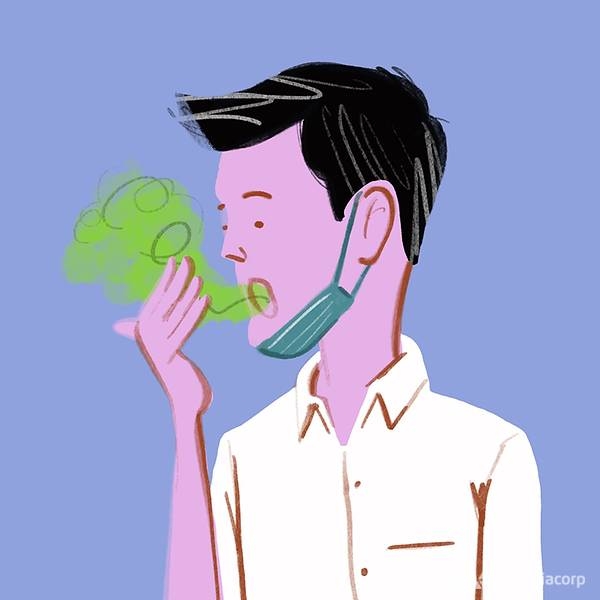 |
| It’s hard to ignore your own breath when you have a mask on. Photo: CNA |
2. Sweaty masks on hot days
Wearing a face mask when it gets warm is hard, and the muggier and warmer it gets, the greater the temptation is to loosen up your face mask to let some air in. But just loosely wearing a face mask is a bad idea, say specialists in respiratory medicine.
The moisture from your sweat will then create a favourable environment for pathogens to collect, while also reducing the permeability of the mask, making it more difficult to breathe, says the pneumologist.
If you’re using home-made or fabric masks and are often out and about for a longer time in the heat, you’ll need to start bringing more than one mask with you, says Dominic Dellweg, a lung doctor in Germany’s Kloster Grafschaft Lung Clinic in the state of North Rhine-Westphalia.
If you often find yourself struggling to breathe under a mask, you’re better off switching to disposable or surgical masks, as these are generally more breathable than fabric masks.
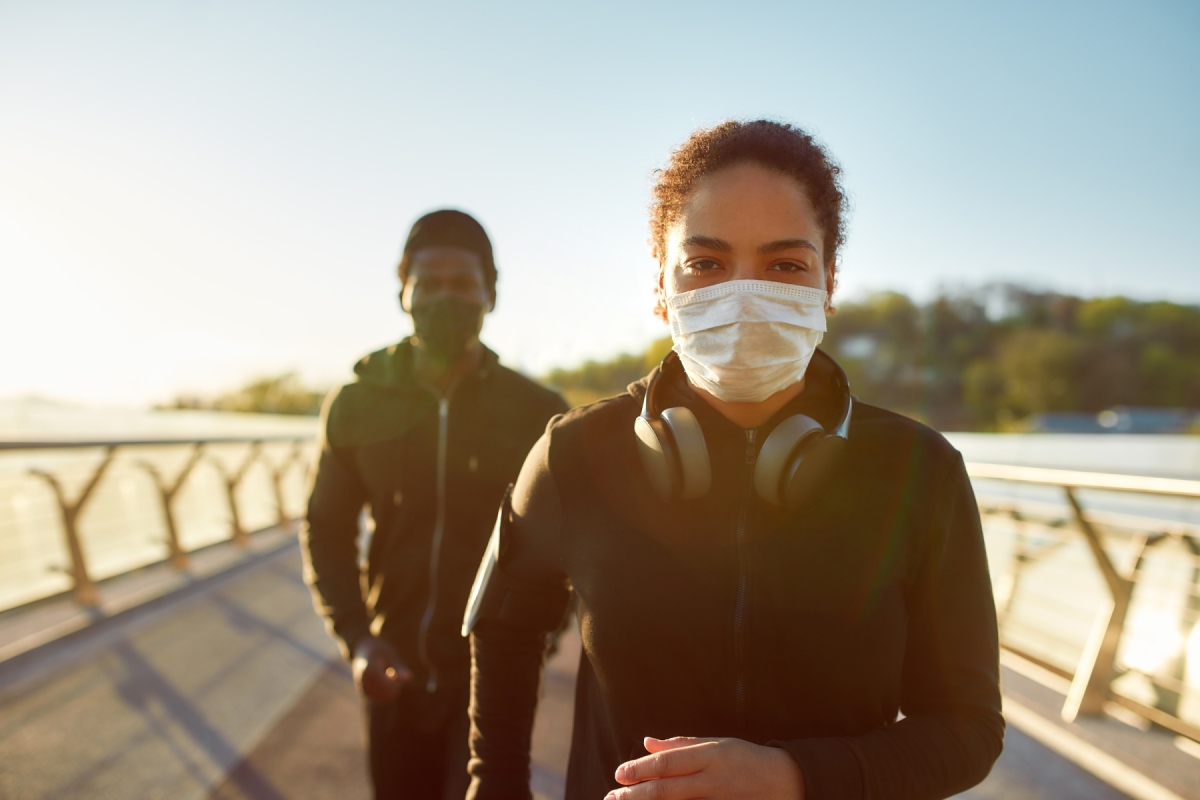 |
| Disposable or surgical masks may help with this case. Photo: Shutterstock |
3. Irritated skin
If you have to wear your mask for a long time every day, you may have noticed your skin getting red and irritated. You may also have been getting more spots on your face.
“It is important to change and clean the masks regularly, otherwise bacterial infections in the facial area can occur,” says Professor Alexander Nast, a dermatologist at the Charite hospital in Berlin.
4. Hidden smiles
Face masks make it harder to tell how someone is feeling. Even when somewhen is talking it can be difficult to gauge their demeanour when all you have to go by is their eyes.
“With a mask covering more than half of the face, an important sensory communication channel is lost or severely limited,” says psychologist Isabella Heuser. “It is simply more tedious and exhausting to know what the other person means.”
Nevertheless, Heuser says it is important to wear masks, even if you work in a situation where you’re expected to be warm and welcoming to people. “It helps to reduce the risk of infection and is thus a sign of solidarity,” she says.
Avoiding sunglasses and expressing yourself more with your eyes and hands can help offset the lack of visual cues from your mouth.
But Heuser says we’ll generally have to get used to everyday communication behind masks and at a distance being more difficult and tiresome.
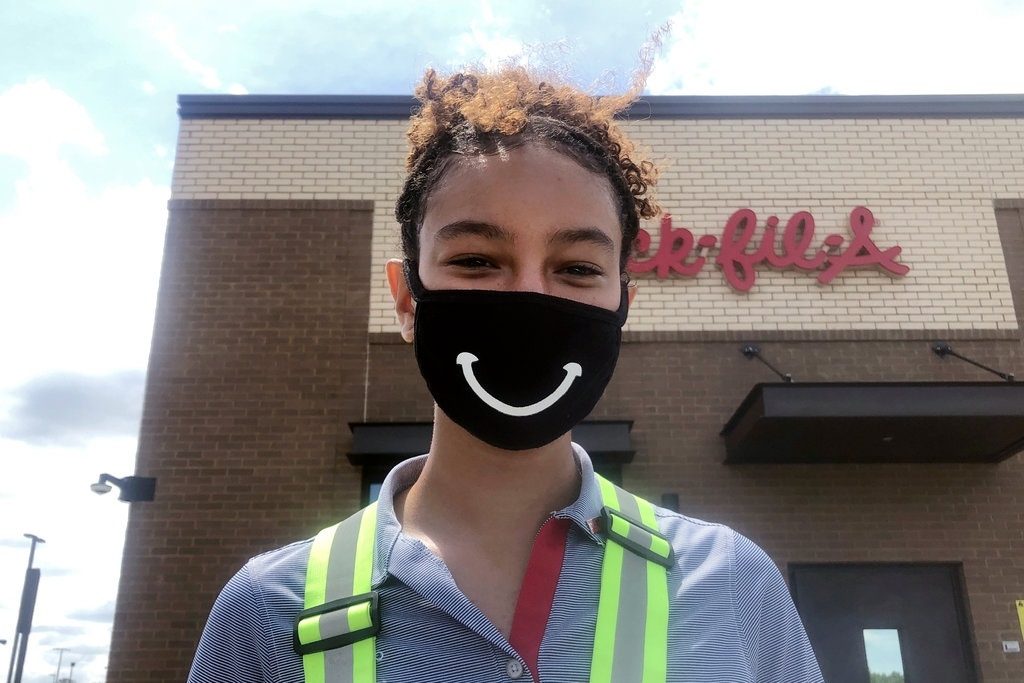 |
| When no one can see a smile, some people are improvising. Photo: AP |
5. Foggy glasses
Anyone who’s tried on a face mask with a pair of glasses will probably have noticed that often they immediately fog up from the moisture of your breath.
But for anyone who wants to wear sunglasses or reading glasses with their mask, there’s a few simple tricks to solve this problem – caused by the warm air hitting the colder surface of the glasses.
First, make sure the mask fits as tightly as possible – “especially the upper part directly under the glasses,” says Timm Koedel, a pharmacist in the German city of Potsdam. This way, you’ll limit the amount of warm air flowing towards the glasses.
“With homemade masks, for example, you can sew in a bendable wire frame that presses the fabric closer to the skin.”
Second, you can try sliding the mask down your nose a bit so that the fabric is further away from the frame of the glasses. This will send your breath past the lenses at more of a distance.
Finally, there’s a simple household remedy to make your glasses fog-proof: rub a small bit of a liquid soap (the variety without alcohol) onto the lenses using a fine cloth.
Afterwards, don’t rinse off the liquid – just polish them dry. The thin film of soap left on the glass will stop the moisture in the air you breathe out from settling on the glass.
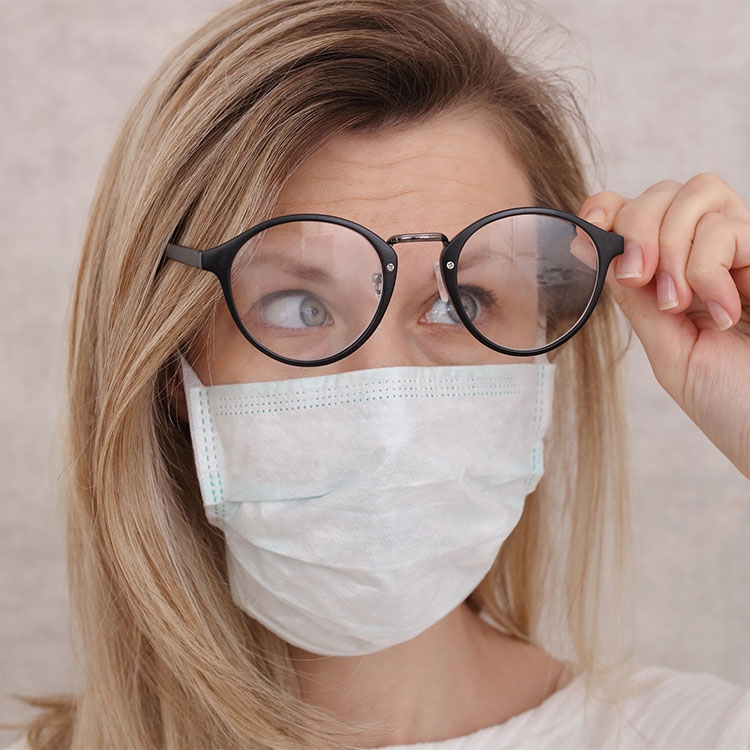 |
| Foggy lenses is an unexpected consequence of wearing facemasks. Photo: Versant Health |
6. Yanked-out hearing aids
For people with hearing aids, masks can be a major annoyance, as the rubber bands will get wrapped up around the hearing aids and pull them off when you take off the mask.
The problem is that anyone with impaired hearing might not hear the sound of their hearing aid hitting the ground. Switching to face masks with bands that go round the back of your head can be a solution, as well as getting into the routine of checking everything is still there.
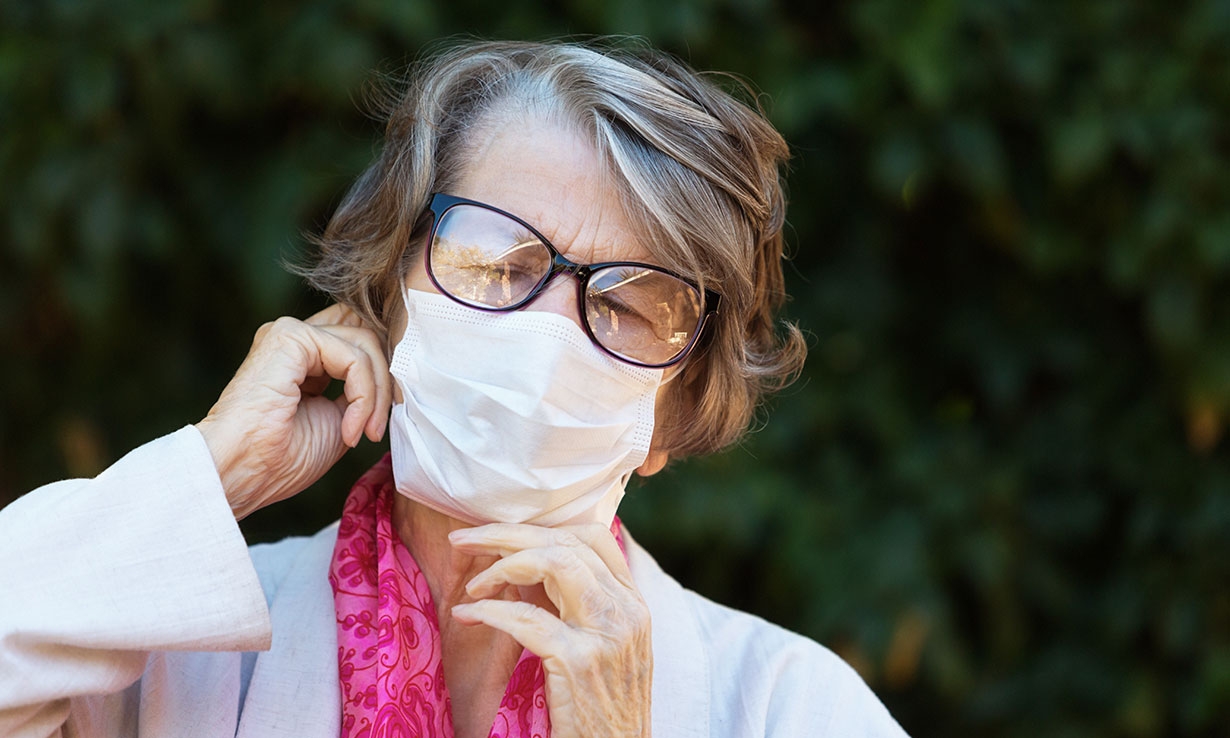 |
| Choose a suitable facemask that makes you feel comfortable is very important. Photo: which |



